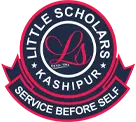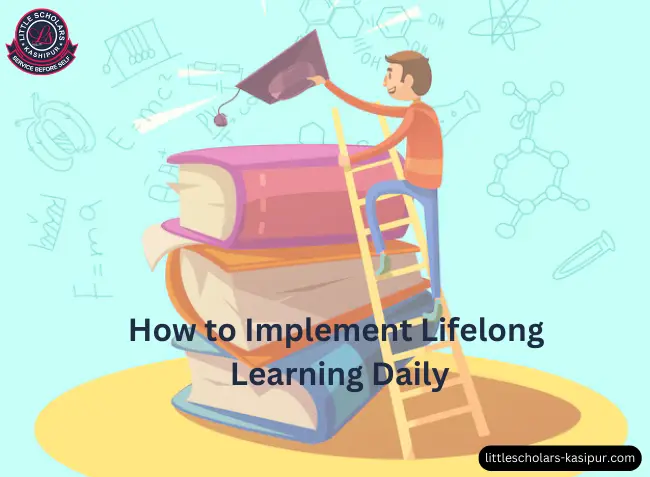In today's fast-paced world, the concept of lifelong learning has gained significant importance. But how can one effectively integrate continuous learning into their daily life? This article will guide you through practical steps to implement lifelong learning every day, ensuring you stay ahead in both personal and professional realms.
What is Lifelong Learning?
Definition
The continuous, voluntary, and self-driven search of knowledge for one's own or one's career is known as lifelong learning. Along with promoting social inclusion, active citizenship, and personal development, it also increases competitiveness and employability.
Benefits
The benefits of lifelong learning are numerous. It keeps your mind active, boosts your confidence, and helps you stay relevant in your career. Moreover, it can lead to new opportunities and a more fulfilling life.
Setting Learning Goals
Short-term vs. Long-term Goals
When setting learning goals, it’s important to distinguish between short-term and long-term objectives. Short-term goals might include reading a book or completing a course, while long-term goals could involve mastering a new skill or earning a degree.
SMART Goals Framework
Using the SMART (Specific, Measurable, Achievable, Relevant, Time-bound) goals framework can help you create clear and attainable learning goals. For instance, instead of saying "I want to learn Spanish," you could set a goal like "I will complete an intermediate Spanish course within six months."
Creating a Learning Schedule
Daily Learning Routine
Incorporating learning into your daily routine is crucial. Allocate specific times for learning activities, whether it’s early in the morning, during lunch breaks, or before bed. Consistency is key.
Time Management Tips
Effective time management can make a significant difference. Use tools like calendars, planners, or time management apps to schedule your learning sessions. To prevent feeling overwhelmed, divide more complex jobs into smaller, more doable portions.
Learning Outcomes: Discovering the Power of Education
Choosing the Right Learning Resources
Books and Articles
Reading books and articles is a great way to acquire knowledge. Choose materials that align with your interests and goals. Libraries and online platforms like Kindle or Google Books can be valuable resources.
Online Courses
Platforms like Coursera, Udemy, and Khan Academy offer a wide range of courses on various topics. These courses are often flexible, allowing you to learn at your own pace.
Podcasts and Audiobooks
Podcasts and audiobooks are perfect for learning on the go. Whether you're commuting, exercising, or doing household chores, you can listen to experts share insights on topics of interest.
Incorporating Learning into Daily Activities
Learning at Work
Your workplace can be a fertile ground for learning. Take advantage of professional development opportunities, attend workshops, and seek feedback from colleagues to improve your skills.
Learning at Home
Home is another great place for learning. Engage in activities like cooking new recipes, gardening, or DIY projects. These can be both enjoyable and educational.
Learning on the Go
Make use of your commute or travel time by listening to educational content or reading. Mobile apps and portable devices make it easy to learn anywhere, anytime.
Utilizing Technology for Lifelong Learning
Educational Apps
Apps like Duolingo for languages, Khan Academy for various subjects, and Skillshare for creative skills can be incredibly useful. They offer interactive and engaging ways to learn.
Online Communities
Participate in interest-related online forums and communities. Platforms like Reddit, Quora, and specialized forums provide opportunities to learn from others and share your knowledge.
Social Media
Follow experts and educational accounts on social media platforms like Twitter, LinkedIn, and Instagram. These platforms can provide quick and accessible learning opportunities.
The Role of Reflection in Learning
Keeping a Learning Journal
Maintaining a learning journal helps track your progress and reflect on what you’ve learned. Write down key takeaways, questions, and thoughts on how to apply new knowledge.
Self-assessment Techniques
You can better understand your areas of strength and growth by regularly evaluating yourself. Use quizzes, practice tests, or peer reviews to evaluate your learning progress.
Staying Motivated and Overcoming Challenges
Finding a Learning Buddy
A learning buddy can keep you accountable and motivated. Study groups or partners can make learning more enjoyable and provide support when challenges arise.
Rewarding Yourself
Celebrate your achievements, no matter how small. Rewards can be a powerful motivator. Treat yourself to something special when you reach a learning milestone.
Dealing with Setbacks
Setbacks are part of the learning process. Rather than being disheartened, see them as chances to improve. Reflect on what went wrong and adjust your approach accordingly.
Formative Assessment: Boost Learning with Effective Strategies
Balancing Lifelong Learning with Other Responsibilities
Prioritizing Tasks
To balance learning with other responsibilities, prioritize your tasks. Determine what’s most important and focus on those activities first. Use methods to assist in prioritization, such as the Eisenhower Matrix.
Integrating Learning with Family Time
Combine learning with family activities. For example, you can engage in educational games, watch documentaries together, or take family trips to museums and historical sites.
Avoiding Burnout
Pace yourself to avoid burnout. Take regular breaks, and don’t overload your schedule. Ensure you have time for relaxation and leisure activities.
Examples of Lifelong Learning Practices
Learning a New Language
Learning a new language can open up cultural and professional opportunities. Use apps, take classes, or practice with native speakers to enhance your language skills.
Developing a New Skill
Whether it’s coding, painting, or playing an instrument, developing a new skill can be incredibly rewarding. Set aside time every day to practice and get better.
Exploring New Hobbies
Hobbies like photography, knitting, or hiking can be both fun and educational. They offer a break from routine and a chance to learn something new.
The Impact of Lifelong Learning on Career
Career Advancement
Continuous learning can lead to career advancement. It demonstrates your commitment to personal growth and adaptability, making you a valuable asset to employers.
Adapting to Industry Changes
It's critical to keep up with developments and trends in the sector. Lifelong learning ensures you remain relevant and competitive in a rapidly changing job market.
Lifelong Learning for Personal Growth
Building Confidence
Learning new things builds confidence. It equips you with knowledge and skills that enhance your self-esteem and ability to tackle challenges.
Enhancing Creativity
Engaging in creative activities stimulates your brain and fosters innovation. It pushes you to think creatively and approach issues from several perspectives.
Student Life: A Journey of Learning, Growth, and Fun
Lifelong Learning and Social Connections
Networking Opportunities
Lifelong learning offers chances to connect with people who share your interests. Attend workshops, join clubs, or participate in online forums to expand your network.
Engaging in Group Activities
Group learning activities, such as book clubs or study groups, can be both educational and social. They offer a sense of community and shared purpose.
Conclusion
Lifelong learning is a journey, not a destination. By setting clear goals, utilizing various resources, and staying motivated, you can integrate learning into your daily life. Start small, stay consistent, and enjoy the process.




